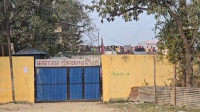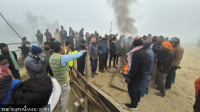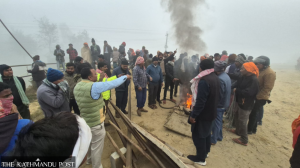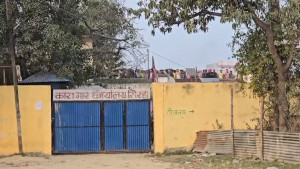Madhesh Province
Local governments in Province 2 lag behind in annual budget presentation
Experts say political differences and lack of experiences in state affairs are major reasons behind the delay.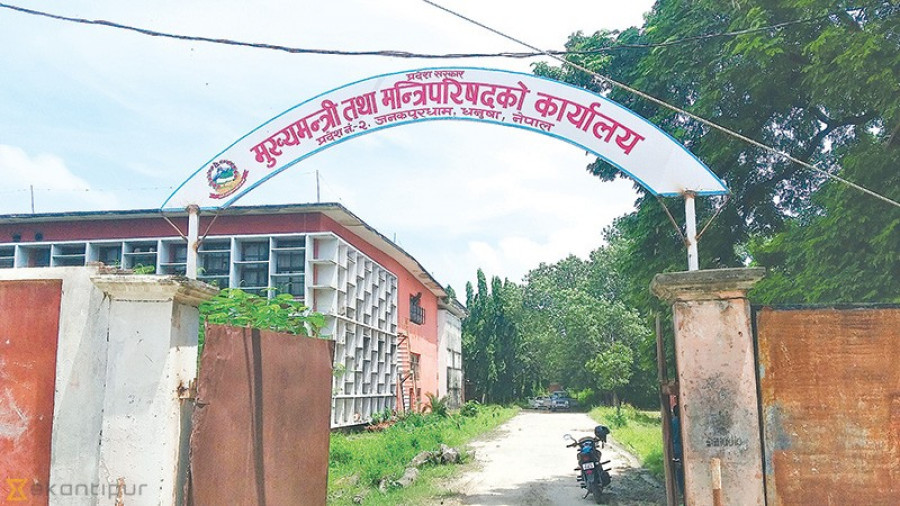
Prithvi Man Shrestha
Chhinnamasta Rural Municipality of Saptari, has failed to present its annual budget in time for three years in a row while 50 local governments across the country are yet to present their budget for current fiscal year 2010-21.
As per the Intergovernmental Fiscal Arrangement Act, all local governments should present their fiscal budgets by June 25.
But, according to Surya Narayan Mandal, chairperson of Chhinnamasta, the rural municipality failed to call the village assembly to present the budget, as the chief administrative officer has not reported to work since mid-July due to family reasons as well as the Covid-19 travel restrictions.
“He will attend the office in one or two days and we will make necessary preparations for holding the village assembly,” Mandal said.
In the last fiscal 2019-20, Chhinnamasta Rural Municipality had presented the budget late. In the previous fiscal 2018-19, it had presented the budget in April 2019, nine months after the fiscal year began, as the elected local representatives could not agree on the budget share at the ward level.
According to the Ministry of Federal Affairs and General Administration, most local governments that failed to present a budget for the current fiscal year so far are from Province 2. Of the total 50 local governments that have failed to present their budget this fiscal year, 36 are from Province 2, four each from Province1, Sudurpaschim Province and two from Gandaki Province.
This is not the first time that local governments in Province 2 have failed to present their budgets in time. In the previous two fiscal years, many local governments in the province were late while presenting their budgets.
While some might argue that the Covid-19 pandemic delayed the budget presentation this year, others could bring up the past records to claim that it was not the pandemic that caused the delay.
“Political differences and issue of international management are basically responsible for why some local governments are failing to present the budget in time,” said Jaya Narayan Acharya, national programme director at the Provincial and Local Governance Support Programe, a government programme designed to develop capacity of sub-national governments. “As the budget is not just a fiscal document but a political one too. Differences among political forces could lead to such problems.”
One particular factor, according to Acharya, could be the representation of diverse political forces at the local governments in Province 2 compared to the local governments in other provinces.
Nepal Communist Party, Nepali Congress and Janata Samajbadi Party—formed after merger of Madhes-centric parties—all have representation at the local level. In other provinces, it is only the Nepal Communist Party and the Nepali Congress that lead the local governments.
Last fiscal year, Bhagwanpur Rural Municipality in Siraha had struggled to present its budget for a long time due to a lack of support from the representatives of other political parties. Bechan Prasad Yadav, who was elected from the erstwhile Sanghiya Samajbadi Forum-Nepal (now Janata Samajbadi Party) as a local unit chairperson, had complained about lack of support from representatives of other parties last time. The rural municipality has already presented its budget for this fiscal year.
However, Tula Narayan Sah, executive director of the Nepal Madhesh Foundation, a non-governmental organisation advocating for Madhesi issues, does not see the difference among the political parties as the main reason for the delay in budget presentation.
“Some local governments have failed to present their budgets even when a single party has a majority in the local assembly,” he said.
As per his observation, the lack of awareness among the Madhesi community about the process of the state affairs is one of the key reasons behind consistent delay in presenting a timely budget in Province 2. “This is because for a long time, the Madhesi community didn’t have access to the state and their representatives and they are unaware about the grammar of the state affairs,” Sah said.
Most of the local governments in Province 2 that failed to present their budgets are based in the inner parts of the region highly populated by the Madhesi community, according to the federal affairs ministry.
“Even after democracy was restored in 1990, the Madhesi community never got real political freedom. They could not criticise the dominant political system. When there is critical civil society, it makes a difference in the process of governance at the local level,” Sah said. “In Madhesh, people of the hill region and Madheshi elites promoted the political culture of patronisation which resulted in the lack of knowledge about state affairs among the Madhesi community.”




 16.12°C Kathmandu
16.12°C Kathmandu

